The ads ecosystem is rapidly evolving to meet privacy expectations. As a result, the industry is moving away from the primary technology it relies on to deliver relevant and personal ad experiences, yet personalized advertising remains valuable to both consumers and brands. One common misconception is that personalization is at odds with privacy; however, that is not the case. In fact, many of the solutions evolving today are actually helping to create a more private world with consumers at the center of decision-making.
![]()
Many advertisers currently rely on browser data captured by pixels which are downloaded along with the web page. The pixel sends a cookie to the server when the user completes a tracked event like making a purchase, abandoning their cart or viewing a product page. With pixels in place, marketers can measure and optimize campaigns, using captured data to adjust audience targeting. But the reliance on web browsers is becoming a growing challenge, as they are not always the most reliable way to capture data, especially as more and more consumers are using ad blockers. Loading errors and connectivity issues can also prevent tracking pixels from capturing valuable browser events. In addition, and most importantly, recent and impending browser changes including limitations to the efficacy of cookies will make it more difficult for websites to share information about site visitors’ activity with their analytics and service providers. This is a massive industry change impacting the ability to share data through pixels and the cookies they send out.
In 2018, Apple’s Safari browser launched Intelligent Tracking Prevention (ITP), blocking third-party cookies by default and limiting the lifespan of certain first-party cookies and data storage. In 2019, Mozilla’s Firefox browser blocked third-party cookies by default, and Google has announced their intent to remove support for third-party cookies by 2022. Due to this deprecation, cookies have no long-term viability for digital user identification. Very soon, most browsers will block all third-party cookies by default and even limit the lifespan of first-party cookies.
Without the data captured by cookies via the browser, advertisers will experience an impact to their ability to reach consumers who have expressed interest in their brand, deliver relevant ads to their customers, optimize ads towards conversions and accurately measure and report on campaign results. Facebook’s Conversions API can help. Click here to download a quick reference guide.
What is Conversions API?
Conversions API is a tool designed to help businesses honor the privacy choices made by consumers. It creates a new and direct connection to Facebook allowing advertisers and partners to share information.
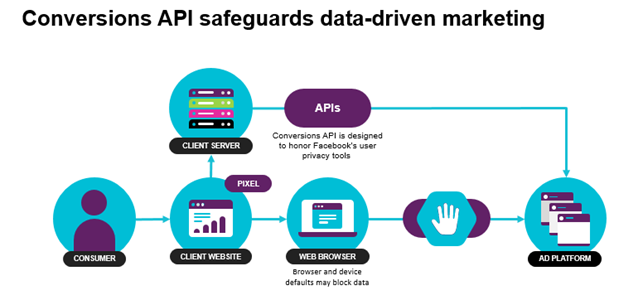
Prior to implementing Conversions API, the flow of event data to Facebook begins with an event, such as customer data being entered into a form field or a user clicking on a webpage link. This triggers a request to the advertiser’s website or server from the web browser to submit information from the form field or load the landing page. When the form is submitted or the landing page loads, the pixel event is triggered, and the Facebook pixel installed on the page will load on the browser sharing the event data with Facebook. However, browser and device defaults are increasingly blocking that data. When Conversions API is implemented, a direct channel for events is established between the advertiser’s server and Facebook, eliminating the reliance on browsers.
In its simplest form, Conversions API allows advertisers to send events, or customer actions, to Facebook that can be used to help improve their advertising.
What are the advantages of Conversions API?
- Discrete data control – advertisers determine what data is shared and when
- Reliable data sharing – less susceptible to browser and connectivity issues
- Full-funnel visibility – more insight into the consumers that matter most
Having a more reliable data connection allows advertisers to not only secure—but strengthen—the insights that power their Facebook campaigns. The data connected to Facebook allows advertisers to create and target custom audiences, personalize ads and drive the outcomes that matter most to their business.
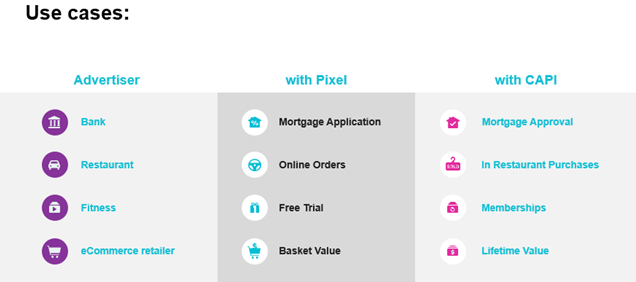
- Banks – The pixel can track only the number of mortgage applications submitted. But CAPI can show how many of those applications were actually approved, allowing the advertiser to narrow in on a segment of consumers.
- Restaurants – The pixel provides visibility of online orders, but what about the people who see or click on an ad and go into the restaurant? CAPI allows that data to be tied back to the ad.
- Fitness – The pixel can track free trials, showing user intent, but CAPI can take that a step further and track memberships.
- eCommerce – CAPI can track not only the basket value, but the lifetime value of the consumer.
Will Conversions API replace the Facebook Pixel?
The short answer is no, using Conversions API in combination with the Facebook pixel can maximize the data connected with Facebook. With stronger data, advertisers can gain greater visibility into the whole funnel of their customers’ actions. Conversions API plus the pixel is our recommended set up for most businesses; however, a standalone implementation of Conversions API may be best for those that handle more sensitive consumer data requiring compliance with HIPAA requirements like those in the health and medical industry. The discrete data control provided by Conversions API allows the advertiser to select which data points are shared with Facebook to ensure compliance.
Conversions API allows advertisers to pass along web events, offline events, CRM data, qualified lead information gathered over the phone or significant customer interactions happening elsewhere online and offline. Many of these events are not captured by the pixel giving advertisers a big advantage in reaching the right customer with the right information.
Will there be an impact to Facebook campaigns if Conversions API isn’t implemented?
Yes. Without the ability to properly attribute online actions advertisers will be forced to revert to the link click method used 5-6 years ago to optimize campaigns. The problem with this approach is that users who click on an ad aren’t necessarily the users who convert online. Advertisers need to be able to track those online actions to optimize campaigns accordingly. In addition, by October 1, 2021, Facebook will require advertisers to implement Conversions API in order to run lift tests.
Mindstream Media Group can help advertisers avoid this setback, first by validating the quality and impact of Conversions API on your Facebook campaigns, then reviewing the historical data you already have to establish proper strategy and benchmarks for future success. Adopting Conversions API now is a proactive step that can help safeguard your brand’s advertising from the performance degradations we expect over the next year.
Can Conversions API prevent the impact of iOS 14 data loss when users opt-out?
There are several benefits for advertisers that are adopting Conversions API, including explicit and intentional control over how and what data is shared with advertising platforms. Another benefit is the customer journey insights for interactions that occur both on and off a business website, as well as access to personalized advertising features and functionality for deep funnel optimization.
However, like data collected by the pixel, any data that’s collected via Conversions API for iOS 14 users is governed by the same Aggregated Event Measurement (AEM) requirements, which means that measurement tracking and optimization of some mobile web events will be very significantly impacted.
Facebook’s Aggregated Event Measurement is a protocol that allows for measurement of web events for iOS 14 users. It limits domains to eight conversion events that can then be used for conversion optimization.
Events that are sent through CAPI do still need to adhere to the requirements of AEM, so it’s not necessarily a solution, but as browser policies impact the efficacy of cookies for sharing data, businesses need to adapt to new technologies to power personalized advertising. Conversions API really enables the next generation of personalized advertising on Facebook.
Will Facebook store or sell the data that companies provide through Conversions API?
Regardless of how data is shared—whether it’s through the pixel, Offline Conversions, Conversions API, etc.—Facebook business tools’ terms mandate that advertisers only share data in line with their own legal obligations, platform terms and commitments made to their users. Conversions API, like Facebook’s other business tools including the pixel, is designed to honor Facebook’s consumer privacy controls, which allow users to choose and manage how their data is used and shared.
For instance, Off-Facebook Activity (OFA) is an option that allows users to see and disconnect information that other websites and apps share with Facebook. The platform provides full transparency about the information it receives and how it’s used, in their publicly available Data Policy. In addition to those terms, Facebook also uses active data filtering, which automatically removes certain types of potentially sensitive data, like social security numbers or passwords, before it is stored.
Is there a one-size-fits-all solution for implementing Conversions API?
Each brand or advertiser will have their own unique needs, and there are three implementation methods to help customize a solution.
Direct
Your brand’s developers, or web dev team, work alongside Facebook developers to build an integration.
Facebook Marketing Partners for Technical Services
If your brand does not have a web dev team or if you need extra resources to build a direct integration, Mindstream Media Group can leverage our partnership with Facebook to find a technical services partner to help your brand with the heavy lifting on the back end.
Partner Solutions
Partner solutions include third-party vendors who already have integrations created to help enable server-side data sharing. There are several types of partner solutions.
- Customer Data Platforms like Tealium and Segment collect and distribute client data to various platforms, including Facebook.
- Commerce and Website Platforms like Shopify, for example, enable end-to-end creation and management of online stores for ecommerce brands.
- System Integrators like Zapier or LeadsBridge provide technical integrations for platforms in agnostic use-cases.
- Marketing Technology point solutions like Salesforce or Adobe help power marketing campaigns and are geared toward lower-funnel events like purchases.
As your partner in Conversions API integration, Mindstream Media Group will help you decide which solution is best for your brand.
Has Conversions API been successfully implemented by any brands?
There are a handful of CAPI case studies available within Facebook for Business success stories. One great example is Love Your Melon, which is a direct response (DR) focused apparel brand that implemented Conversions API using the Shopify integration. After integration, an account-wide conversion lift study was conducted to understand the true business impact and validate results. Love Your Melon saw a 17 percent increase in attributed revenue after integrating CAPI. They also saw a $230,000+ sales lift in incremental revenue and over 3,000 incremental conversions from implementation of CAPI plus the pixel, (the recommended approach).
Another example is HoneyBook, a business management platform that helps small businesses organize all of their client communication and payments in one place. They were also an early adopter of Conversions API and used it to cut their acquisition costs by 50 percent.
How do I get started?
First, you’ll want to secure buy-in from key stakeholders within your company, like marketing executives, technology or analytics teams, IT, a solutions partner and your legal counsel. Once you receive buy-in from the necessary parties, we’ll work to establish a proper data connection and monitor data flowing to Facebook.
Although this process is different for every company, we estimate a time frame of around 90 days from buy-in to implementation. Using a partner with more of a turnkey solution could result in faster implementation, but the more requirements your brand has, the longer the process will take. 2022 is approaching quickly so it’s important to get the ball rolling.

![[WEBINAR RECAP]: How Will Facebook’s Conversions API Help Propel Brands Into a Cookieless Future?](https://mindstreammediagroup.com/wp-content/uploads/2021/05/Recap2.png)
![[WEBINAR]: How will Facebook’s Conversions API help propel brands into a cookieless future?](https://mindstreammediagroup.com/wp-content/uploads/2021/04/MMG-Facebook_Webinar_1200x675-blog.jpg)
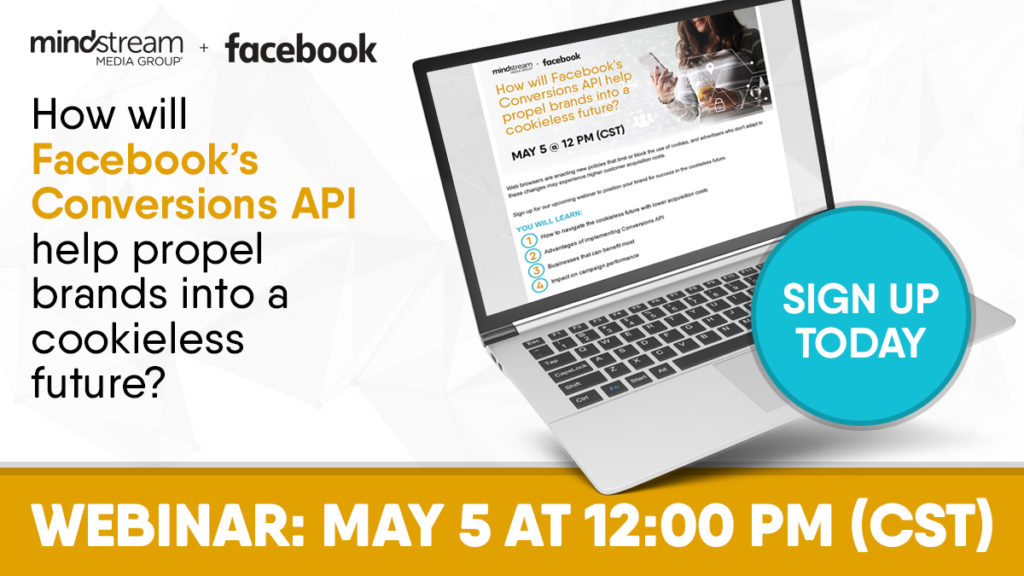




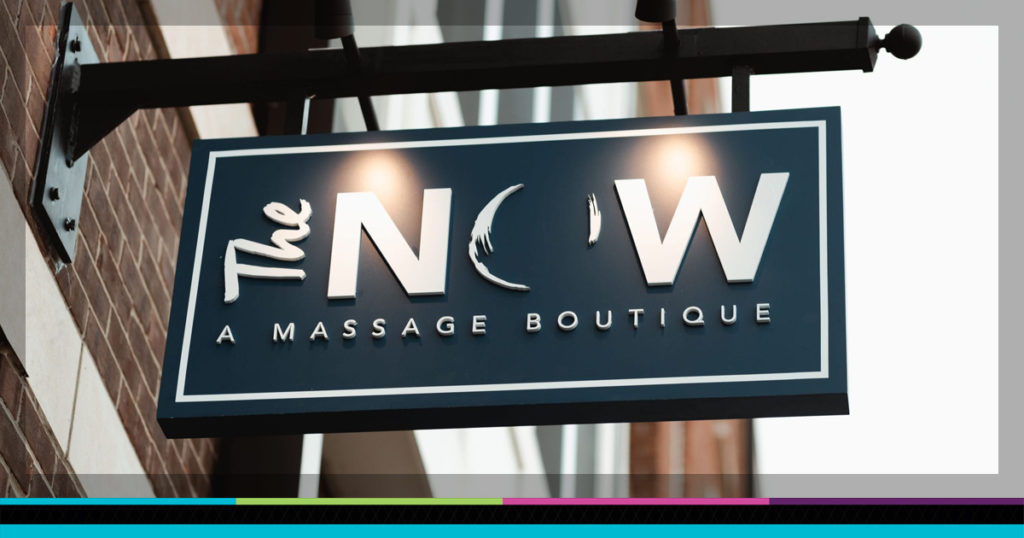
![[Case Study]: Media Restructure Delivers 55% Lead Efficiency in Pandemic Year](https://mindstreammediagroup.com/wp-content/uploads/2021/02/GettyImages-1035789052-scaled.jpg)
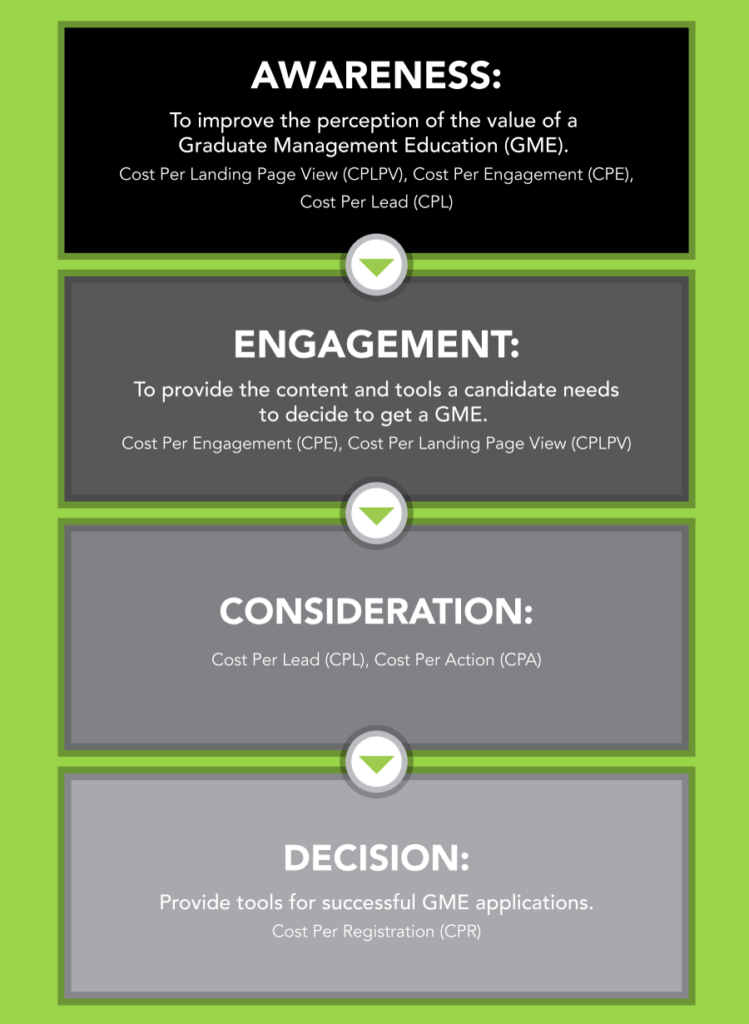
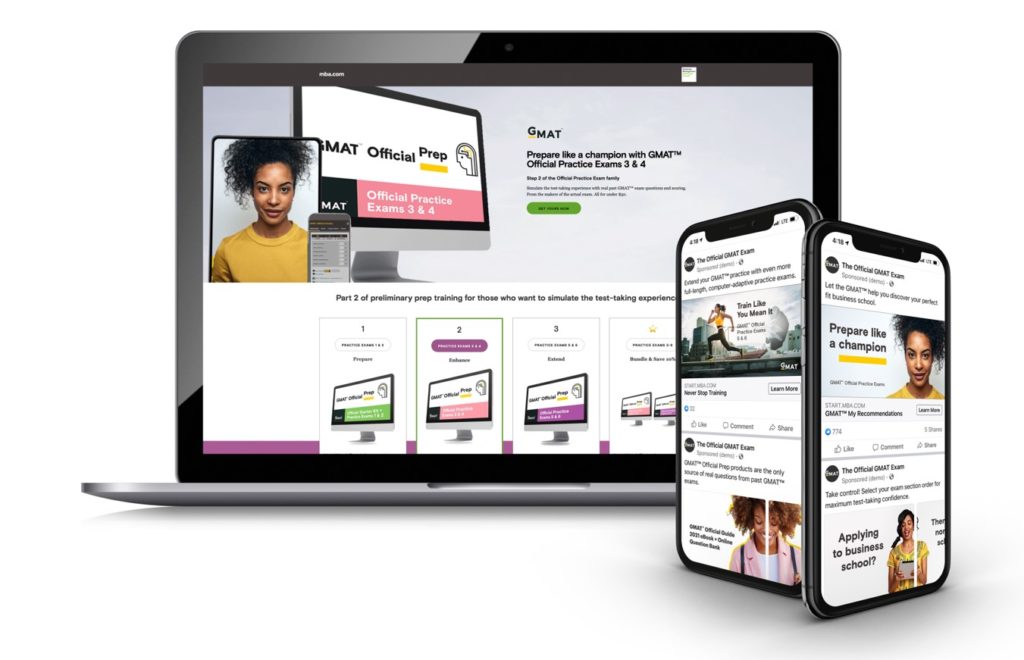
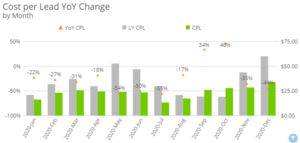
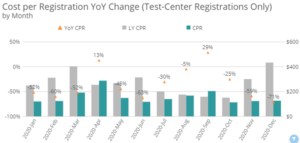


![[Video]: Influencing the Customer Journey](https://mindstreammediagroup.com/wp-content/uploads/2020/10/CustomerJourneyFeaturedImage-scaled.jpg)
